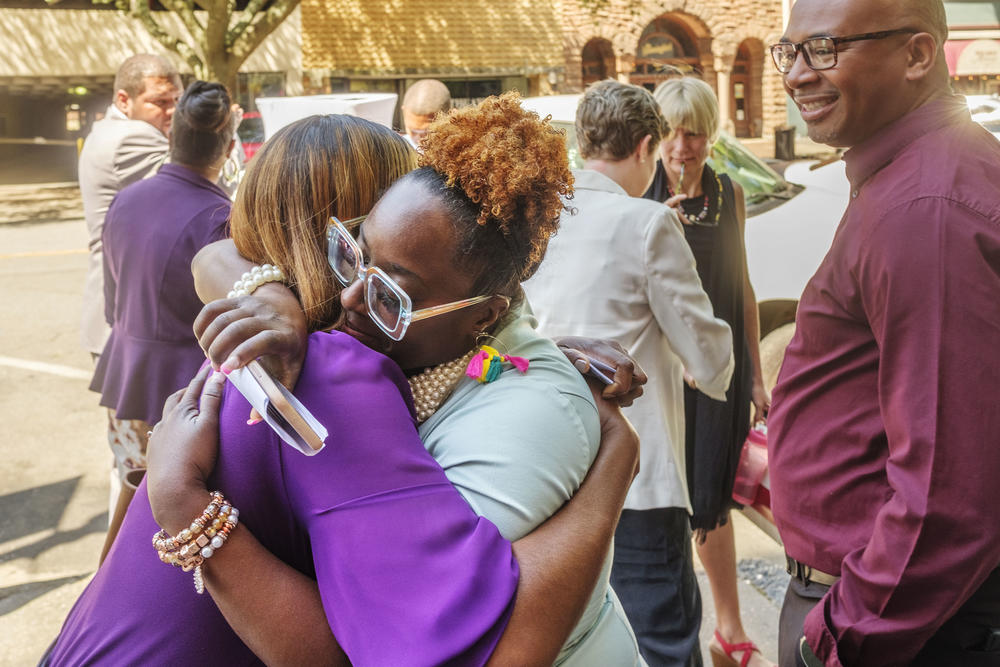
Caption
Anissa Jones, center, hugs her friend Shanita Davis after a press conference about the lending program helping Jones and her husband Deon Aiken, right, purchase a building in downtown Macon.
Credit: Grant Blankenship

Anissa Jones, center, hugs her friend Shanita Davis after a press conference about the lending program helping Jones and her husband Deon Aiken, right, purchase a building in downtown Macon.
Downtown Macon business owner Anissa Jones and her husband, Deon Aken, are buying a home. If you ask their friend Shanita Davis, it’s a really big deal.
“Hallelujah!” Davis exclaimed as she embraced Jones outside the more than 100-year-old building Jones and Aken are buying on Cherry Street in downtown Macon.
The long history of discriminatory bank lending has historically meant that what Jones and Aken are doing — buying a downtown building to house not one but two businesses and a home — has been out of reach for a lot of Black people.
“Especially Black women,” Jones said before Davis picked up the thread.
“And we have worked twice as hard,” Davis said. “We were not allowed to fail. We could not fail if we wanted to have an impact such as this.”
Davis’ congratulations followed the announcement of a new program from the nonprofit Newtown Macon aimed at unraveling inequities in lending.
Josh Rogers is the president of Newtown Macon. He said the organization devoted to downtown revitalization has been lending to downtown entrepreneurs for about a decade.
“I mean, whoever showed up, we were like, ‘Great, build a loft,’” Rogers said. “And we'd invest in the project.”
“But what we found is we were investing half in women and half in people of color already,” he continued. “Because as a nonprofit lender, when you get out of the regulated environment of banks, those are the kinds of people who are not able to access capital.”
Macon was one of the original cities to be “redlined” when the federal government told banks not to lend to Black people there during the Great Depression in the 1930s. In more recent years, some local banks have been found to continue the practice of denying loans to Black people at rates higher than for whites.
So after a $1 million dollar donation from the Sheridan Foundation, Newtown is formalizing its emphasis on loaning to women and people of color with the creation of what’s called a community development financial institution. That will allow Newtown to not only lend as it has been but to also offer tax credits to traditional banks in return for money the banks put into the community chest.
Jones and Aken are borrowing from Newtown to renovate the building on Cherry Street where they will live and work. Until now, they had been paying rent.
“And now what we'll be doing is taking that same money and we'll be investing it back into ourselves because we'll be paying ourselves, to rent from ourselves,” Jones said with a laugh.
Rogers says he hopes that’s the sort of change that turns entrepreneurs into millionaires.